
Explore the top rated North Hollywood drug rehabs with confidence. We've analyzed each of the 25 addiction treatment centers in North Hollywood, CA for patient reviews, clinical credentials, transparency, and brand reputation to identify the best rehab programs.
Filter by inpatient, outpatient, detox, health insurance, specialty program and more to quickly find the best drug and alcohol rehab in North Hollywood.Our Methodology
Rehab Score
Our Rehab Score is designed to make it easier for you to find the best treatment centers. We combine overall ratings with recent feedback to create a score that reflects a center's quality right now.
.

| Name / Address / Rating | Description | Treatments / Programs / Payment Options | Review / Contact | Images | |
|---|---|---|---|---|---|
North Hollywood, CA | LA Valley Recovery, located in North Hollywood, California is a private alcohol and drug rehab that offers treatment for a variety of substance abuse addictions including alcoholism, opiate addiction, and co-occurring mental health disorders. They offer residential care providing long term support for addiction recovery. Patients at LA Valley Recov | Treatments Programs | Been clean a year this was my first step in my recovery and the people there help me .I will always be thankful for that
Daryl Stockton
2 months ago
I recently completed my stay at Los anngeles valley recovery center, and I can honestly say it was one of the most important and transformative experiences of my life.
From the moment I arrived, I was treated with dignity, compassion, and genuine care. The staff, nurses, counselors, techs, and everyone in between went above and beyond to make sure I felt safe, supported, and respected throughout the entire detox process. They didn’t just monitor my health; they listened, encouraged, and reminded me every day that recovery is possible.
Detox isn’t easy, but the team here made it manageable. They were professional, knowledgeable, and most of all, human. I never felt judged, only understood. The environment was clean, calm, and structured in a way that helped me stay focused on healing.
I’m leaving here feeling clearer, stronger, and more hopeful than I have in a long time. I know this is just the beginning of the journey, but thanks to this program, I finally feel like I’m heading in the right direction.
Thank you from the bottom of my heart. I will always be grateful for the care and support I received during one of the hardest times in my life.
Thank you, Jeffrey w grateful client
Jeffrey West
5 months ago
Great place, Accommodated all my needs helped me get to my appointments and the house was nice! They will go above and beyond for your treatment needs.
Samuel Buchanan
5 months ago
| 
| |
North Hollywood, CA | Ambience Recovery is an addiction and mental health treatment facility in North Hollywood, in the Los Angeles area of California. The facility offers inpatient and outpatient programs, as well as medical detox and medication assisted treatment (MAT). They accept most major PPO insurance plans and offer some private pay options as well. The facili | Treatments Programs Payment Options | My experience at Ambience Recovery was absolutely incredible. Each and every staff member went out of their way to make me feel safe, supported, and comfortable. Special thanks to my case manager Lucky, my therapist Lauren, BHT staff (including Lupita, Chuck, Henry, and Dante), and Nursing staff (Nicole, Paul, and Eric) for taking care of my needs and keeping me company on the tough days. I leave this facility optimistic and full of hope for my sober journey that lies ahead. I would highly recommend this facility to anyone in need their time of need. Thank you all, again!
Jose Gallardo
8 months ago
This place was unlike anything Ive experienced in my life, the staff was amazing and attentive to all of my needs. Everyone was really helpful and it couldn't have been more comfortable. Thank you for everything!
Apache Alan
8 months ago
Thank you so much Ambience ! Amazing staff of therapists, nurses, on hand chef, and techs ! Couldn’t have asked for a better experience. Daily therapy sessions and meditations, great scenery, and even better employees. Definitely check this out for your first step in recovery
Ricky Pittman
8 months ago
| ||
North Hollywood, CA | White Oak Recovery Center provides substance use treatment for adults 18 and older in North Hollywood, California. They offer medical detox services, residential treatment and outpatient care. The team emphasizes personalized recovery plans to help guests overcome addiction.Offering Medical Detox TreatmentThe staff at White Oak Recovery understands | Treatments Payment Options | We have a gem of a facility here where they were able to help me get the help I needed in the amount of time that was great. I would highly recommend coming here, the staff were very helpful.
Again, I would highly recommend coming here, the staff were very helpful.
Bob Brsgs
5 months ago
I have nothing but good vibes for this place. Everything was clean, the people were in nice and I found the grounds to be very pleasant during my in-patient stay. I wish I could have stayed just a little bit longer!
Tim Traga
5 months ago
First class housing. Wonderful staff.
Mark Ridgill
5 months ago
| ||
Ocean Recovery Orange County Drug & Alcohol RehabAd This is an ad and Ocean Recovery Orange County Drug & Alcohol Rehab is a paid advertiser. Paid advertisers may be listed first in search results. This ad may contain content provided by the advertiser. Rehab.com does not verify ad content or any reviews that are displayed. Learn More Newport Beach, CA | Ocean Recovery is a residential rehab for adults with drug and alcohol addiction in Newport Beach, California. They have programs for men and women but this particular location is for adult men. This rehab takes a holistic and comprehensive approach to addiction recovery. They understand that addiction is a complex illness that affects nearly every | Treatments Programs Payment Options | View Website (949) 239-1075 | Ocean Recovery Orange County Drug & Alcohol Rehab has no reviews yet. Leave a review.
| 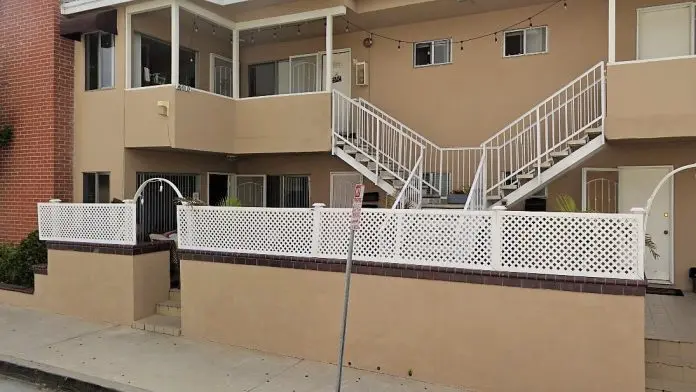
6 6 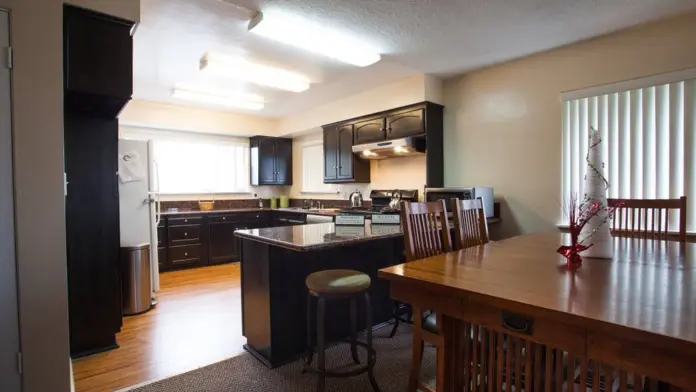

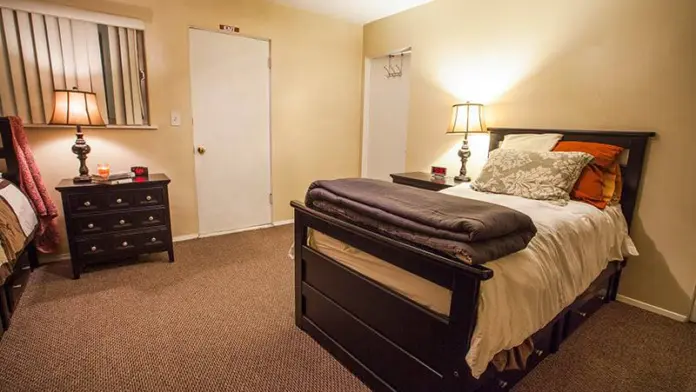

|
North Hollywood, CA | The Interagency Drug Abuse Recovery Program in North Hollywood, California, has served its community for more than 45 years and positively impacted thousands of lives. It's an addiction treatment center that focuses on helping its patients live fulfilling and productive lives free from substance abuse addictions by getting continuous care through i | Treatments Programs Payment Options | Great
Bianca Perfino
7 years ago
| 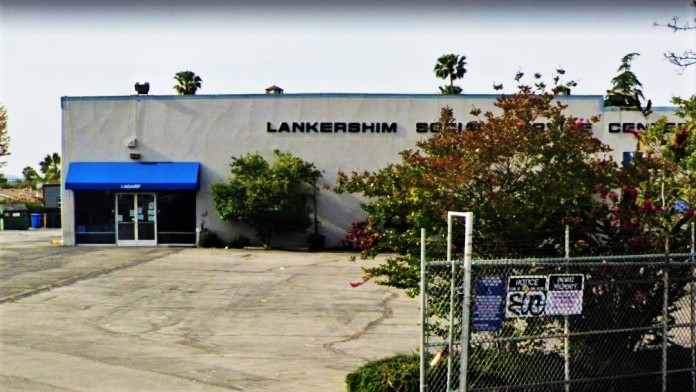
| |
Simi Valley, CA | All In Solutions Detox in Simi Valley is one of the best ranked inpatient detox facilities in California providing safe, medically supervised care for individuals beginning their recovery from drug or alcohol addiction. As part of the All In Solutions Behavioral Health network, this facility serves as the first step in a full continuum of care. Cli | Treatments Programs Payment Options | Amazing place they helped me get my faith back and I really enjoyed the groups. It was honestly the best treatment I have been to and I have been to guide quite a few. Thank you so much
chris carter
6 days ago
The staff and community were incredible. Very accommodating!
Kyle Forbes
1 week ago
Great place. Great staff. Hepsibeth is an excellent counselor!
Ryan McDonald
1 week ago
| 
5 5 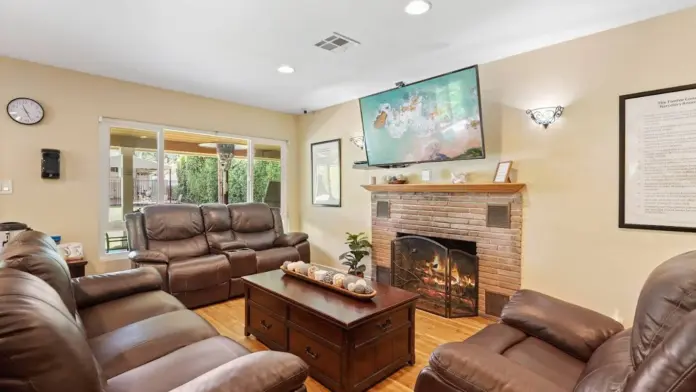

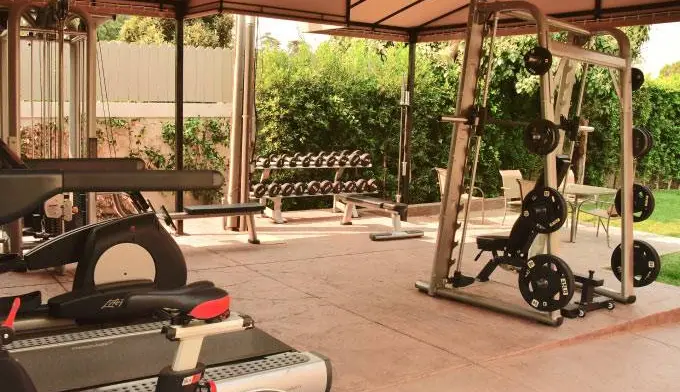
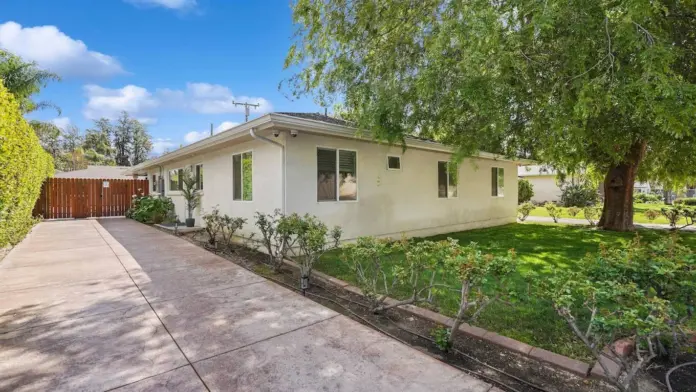
| |
Simi Valley, CA | All In Solutions California was previously known as Adjustments Family Services. They are located in Simi Valley, California. They provide multiple treatment programs for men and women to address dual diagnosis and opiate addiction. Private insurance is accepted. With top-rated Outpatient and PHP programs, All In Solutions Counseling Center Califo | Treatments Programs Payment Options | The most amazing recovery experience. This time was so different (in a good way), thanks to my counselor Jason who really helped me dig deep into what I needed to work on and how to become the best and truest version of myself. He cares about all the clients that walk through that door and wants everyone to see the potential that he sees in them. I love all of the staff at this place and love the calm, warm, and homey feels that the women’s house brings. I would highly recommend for others to start their sobriety journey at All in Solutions, there isn’t a better place to find a community and grow.
Lexie Viestenz
1 week ago
Sara was a delight to have help me. She is a great listener and gave me endless advice. She was very easy to open up to and she really showed how invested she was in my recovery. Only great things to say about her and would highly send others her way.
Debbie Dydio
1 week ago
All In Solutions SAVED MY LIFE!!! The facility is very nice and clean. The support staff is EXCELLENT. The CLinical staff, specifically my therapist Bobby and case manager Liz were AMAZING and INCREDIBLY OUTSTANDING!!!!!!!!!!!!!!!
Joseph Tiano
1 week ago
| 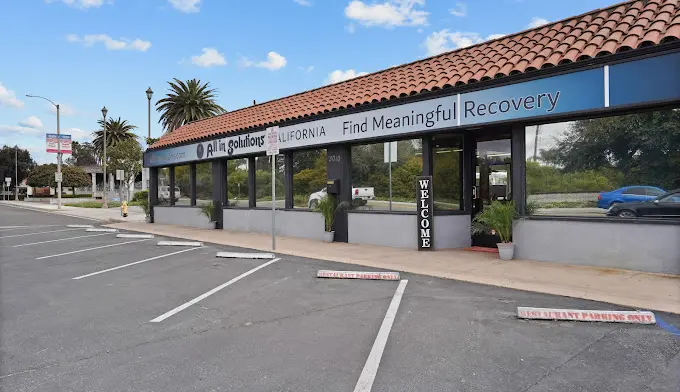
5 5 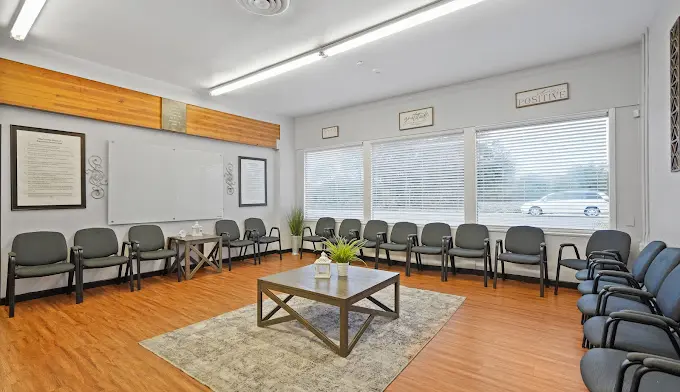
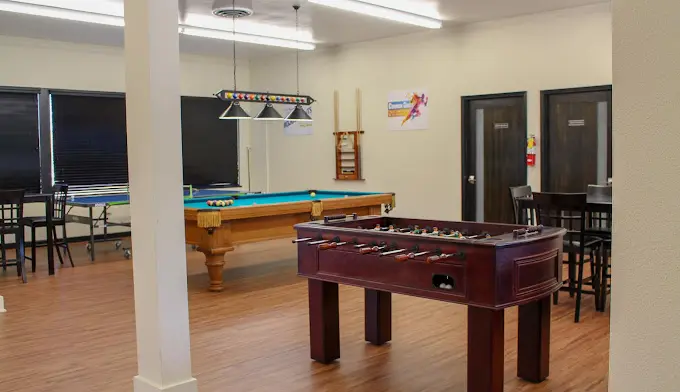


| |
Top California Cities | |||||
Malibu, CA | Rise in Malibu is a secluded drug and alcohol rehab program in Malibu, California. They deliver Joint Commission accredited detox, inpatient treatment, medication assisted treatment (MAT), and aftercare services to adult clients. Their campus boasts luxury amenities and a seaside view. Detoxification at Rise Malibu takes place in its luxury residen | Treatments Programs Payment Options | This program has saved my wife’s life! They exceed expectations and Ron helped me when I needed it most. They are passionate on what they do and I appreciate them for caring for my wife during this difficult time in her life.
Joe
3 months ago
I want to start by saying to ignore any negative review on this place. I personally went to Rise at Mayberry and cannot say enough of amazing things. I’ve been to many different facilities over the last decade and this one has become family. I get emotional and want to cry with gratitude when I think about how the staff/clients have been there for me during the most difficult moments of my life. Everyone turned their back on me outside of here while they didn’t judge me and gave me a chance. Ron reminds me of my papa being the kindest man ever. He cares deeply about each client, is passionate, patient, generous, the list goes on. Lauren has gone above and beyond for me with all my legal issues making sure everything is done the way it needs to be. She listens without judgment and is always available to help me. Allison was so helpful getting me into this place and throughly explained all the services that’s offered here. She’s relatable and kind. Dr. Neesha is beautiful inside and out, intelligent, and a strong woman of faith. She’s so insightful and working with her as a therapist has been my honor. Not to mention the support staff are incredible. Josh K has also made himself always available to the clients and he’s helped me so much from his own personal experiences dealing with dependency court/CPS. Chris and Tim are also such an honor to know. Tim, with all his travel stories and passion for AA. Chris, prioritizing the physical fitness in sobriety. All their stories on how they ended up here are inspirational. God brought me here unexpectedly and it’s one of the best things that’s ever happened to me. I live in Orange County which has a lot of recovery and places to get sober, but i couldn’t be more blessed that I landed here. I’ve been here without my young children for a couple months now and I wouldn’t have been able to get through this difficult time without everyone here. I’ll never forget what’s been done for me ❤️ addiction is a lonely disease, allow them to help guide you to a solution.
Alexandra Bigland
3 months ago
If you need Detox/Rehab, this is the place to do it. The staff is fantastic, the therapy is top notch. The food is prepared by professional chefs and the food is incredible. All the patients have their own rooms and bath rooms. You may not want to leave.
Tom Haney
3 months ago
| 
6 6 



| |
Los Angeles, CA | Numa Recovery Center is a detox and rehab facility in Los Angeles, California. They treat alcohol and substance abuse disorder. The is a co-occurring disorder treatment facility. Private pay options are available. Evidence based and holistic treatment is offered. Detox will take between 3-10 days. The length of detox is determined by individual nee | Treatments Programs Payment Options | This place goes above and beyond for its clients. Let’s just say I’ve been there more than once on my road to recovery. The staff have become my second family. They have an alumni person that’s reaches out to clients to follow up after treatment and I call her my guardian angel. This place saved my life more than once and I believe it could do the same for you or your loved one. Highly recommend!
Jason Perry
7 months ago
Numa is a wonderful facility helping many people suffering from the disease of addiction. The staff truly cares and shows the utmost attention to detail. I would recommend to any family member or friend!!!
Alex Spivak
9 months ago
Great place to heal and grow. The staff care and are willing to help if you let them. Educational and useful groups that prepare you for relapse prevention and coping skills etc. Definitely recommend if you or a loved one are looking for a treatment center that CARE about their clients.
Madalyn Butler
9 months ago
| 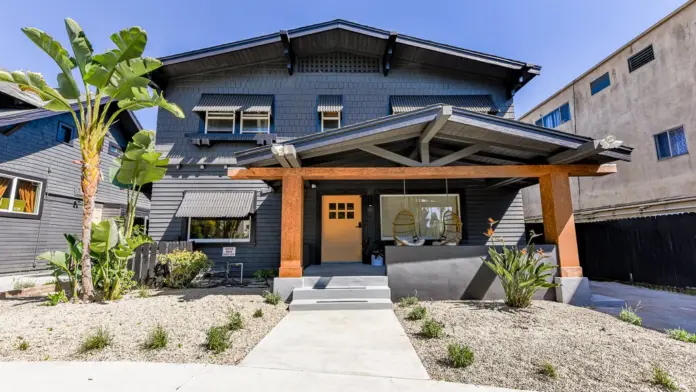
5 5 



| |
Los Angeles, CA | The Detox Center – Los Angeles offers addiction and mental health treatment for adults in Los Angeles, California. They also provide valuable community resources, including referrals and family support services. Treatment at The Detox Center – Los Angeles begins with a mental health assessment to screen for symptoms of addiction or co-occurri | Treatments Programs Payment Options | Wow
I take my health/recovery very seriously and I am a very picky person. There’s not enough characters here to describe the Gratitude and Thx I have for this organization.
Top notch Case Management, Super Super Supportive Medical Staff. And Hi IQ class facilitators who bring the best to the table with each class. My Personal Therapist I have to set aside b/c She rates on The highest level possible in the best sense possible. Thank you ( T) … Five -star rating for sure
DJ Jenkins
3 months ago
Fantastic rehab run by professionals
Molakar
3 months ago
I'm incredibly pleased with the program here. The staff all are great people, they really care and are all in recovery themselves, which is very important to me. The facility is great. And seeing the transformation of the patients over the 30 is an experience you don't get anywhere else. Thank you to Tdcla for helping me become the person I love again.
Colin Campbell
3 months ago
| 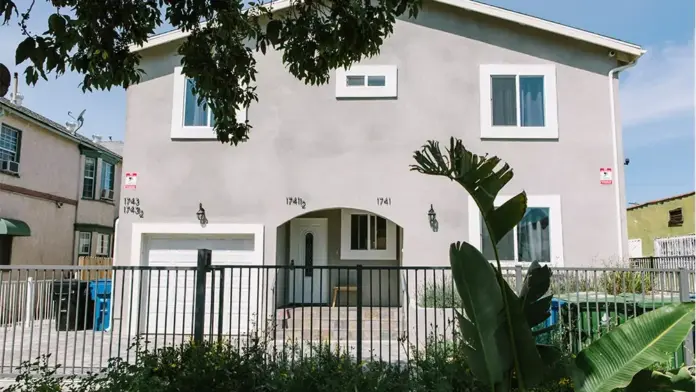
6 6 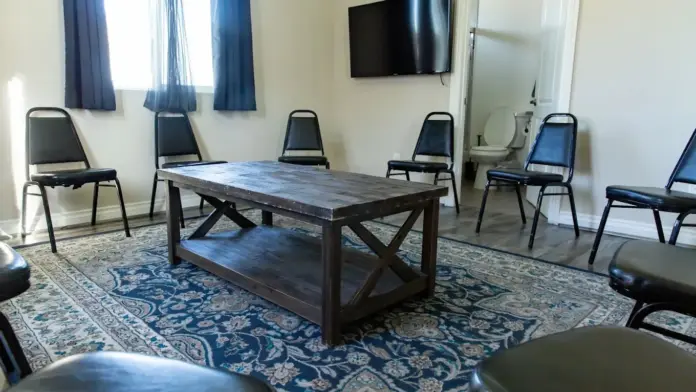



| |
Banyan Palm SpringsAd This is an ad and Banyan Palm Springs is a paid advertiser. Paid advertisers may be listed first in search results. This ad may contain content provided by the advertiser. Rehab.com does not verify ad content or any reviews that are displayed. Learn More Cathedral City, CA | Banyan Palm Springs is a luxury addiction recovery center ensconced in the serene, tree lined community of Cathedral City, California. They offer a complete continuum of care to support your success at every stage of the recovery journey, from medical detox to inpatient treatment to outpatient and aftercare. Banyan Palm Spring’s expert clinici | Treatments Programs Payment Options | View Website (561) 220-1814 | Banyan Palm Springs has no reviews yet. Leave a review.
| 
9 9 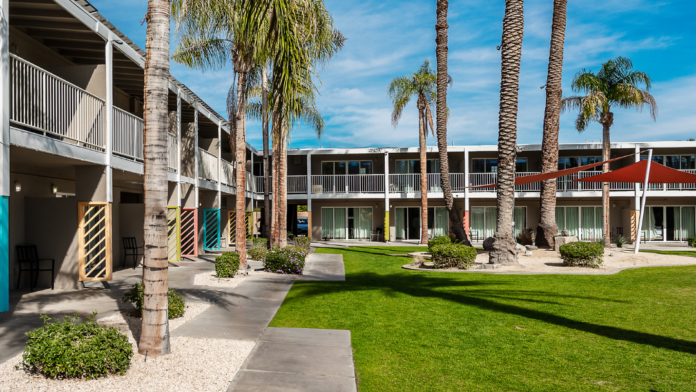
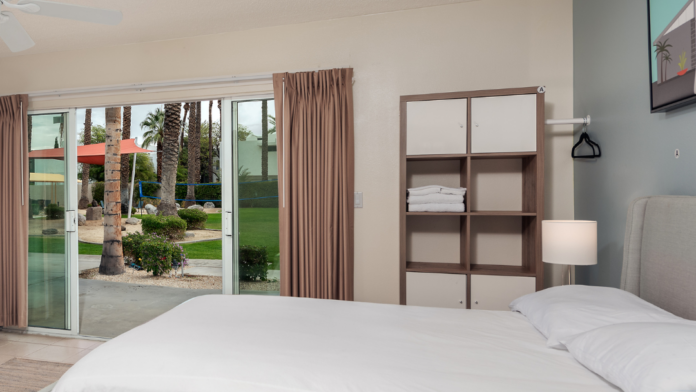
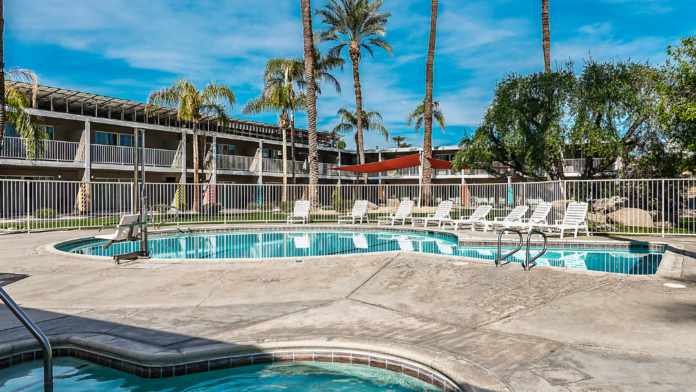
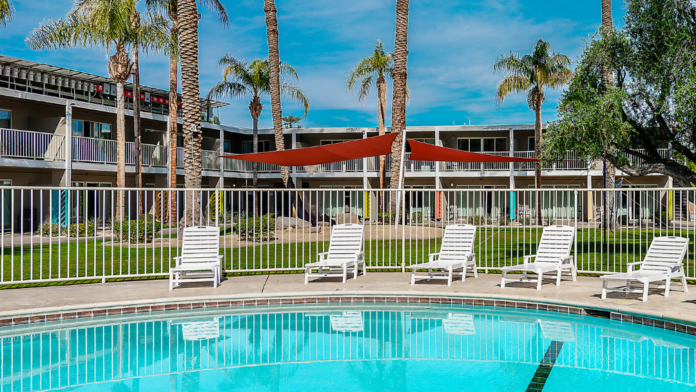
|
Los Angeles, CA | At Hollywood Hills Recovery in Los Angeles, California, we provide a serene environment where individuals can embark on their path to sobriety with professional guidance from our addiction treatment experts. As you search for rehab near me in Los Angeles, consider our facility that is dedicated to fostering personal growth and healing from substanc | Treatments Programs Payment Options | Hollywood Hills Recovery truly sets the standard for compassionate, client-centered care.
As a current staff member, I can honestly say this is one of the most supportive environments I’ve ever been part of, both for clients and for the team. Everyone here, from the owners to the techs and everyone in between , plays a meaningful role in helping shape the future of our clients. The level of dedication, empathy, and professionalism is something you feel the moment you walk through the door.
The staff genuinely care about every individual who comes into the program. We work together every day to ensure clients feel safe, supported, and empowered on their journey to recovery from drugs and alcohol. It’s inspiring to watch lives change here, and it’s an honor to be part of a team that shows up wholeheartedly.
Hollywood Hills Recovery isn’t just a treatment center, it’s a community built on compassion, teamwork, and the belief that recovery is possible for everyone.
David Takamine
3 months ago
Great place. Great Staff. They care about you're recovery every step of the way. The support and care I've received here has helped me with my addiction and mental health and I could never be more thankful.
Tyler
3 months ago
I have enjoyed my stay at the Hollywood Hills Recovery Rehab , I must say they are very professional here and clean very caring as well. I appreciate all that the staff has done. Special mention to Christian he is very friendly and on top of his game. Picked me up directly from the airport with no trouble whats so ever. I recommend it to anyone who struggles with anxiety self esteem or building a community, this place has it all!
I highly recommend giving this Rehab facility
Sam Mata
3 months ago
| 
6 6 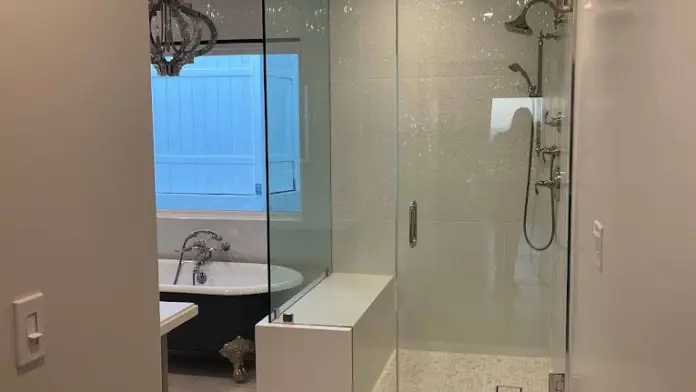



| |
Los Angeles, CA | REVIVE Recovery and Detox Services, located in Los Angeles, California offers medical detox and residential alcohol and drug rehab programs to adults. Services include dual diagnosis care, medication-assisted treatment (MAT), pulsed electromagnetic field (PEMF) therapy, and neurofeedback therapy. Medical detox at REVIVE includes 24/7 supervision al | Treatments Programs Payment Options | I cannot express enough gratitude for this incredible detox facility. From the moment you walk in, you feel like you’re stepping into a safe, warm home rather than a treatment center. The owner—an exceptionally smart, dedicated, and long-time successful doctor—has helped change and save countless lives, including mine. She is not only a phenomenal clinical psychologist but also a true sponsor at heart. She consistently puts others before herself, and somehow always knows exactly what to say and how to help when you need it most.
Her compassion is unmatched. If you genuinely want sobriety, she will do everything she can to support you. Her doors are always open, and she creates an environment that feels like family—supportive, comforting, and full of hope.
I never imagined I would reach one year sober, but here I am. My life has completely transformed for the better, and I owe so much of that to her, this home, and my Higher Power. This place is more than a detox—it’s the beginning of a new life. If you’re ready for change, this is the place to go.
Christopher Young
2 months ago
This facility more than cares for their clients! Their very professional and loving ❤️ I would recommend them to anyone that's struggling with substance abuse. Thank you Revive for my life.
Michael D.
Michael Dulman
1 year ago
Revive was a great experience. The first week was rough for myself but after finding a balance within myself and being able to attend groups I was able to acquire the tools I needed to maintain my sobriety.
Joe Stern
1 year ago
| 
6 6 


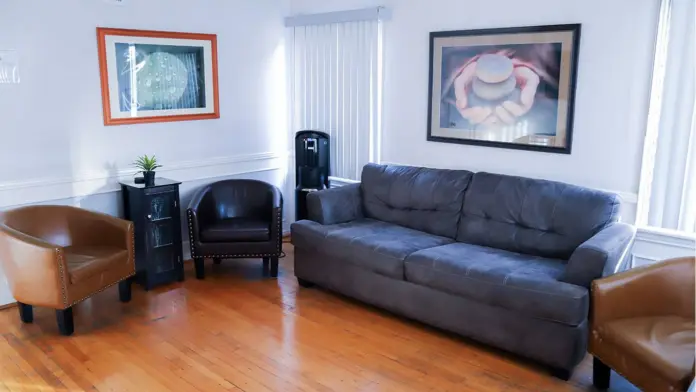
| |
Redondo Beach, CA | Clear Behavioral Health provides drug rehab services to adults living around Redondo Beach, California. They also offer programs for teens, but only at the outpatient, intensive outpatient (IOP), and partial hospitalization program levels. Here we’ll be focusing on their residential, or inpatient (IP), program, which only serves adults. They have | Treatments Programs Payment Options | Can’t say enough about the amazing and life changing work these guys do. Highly recommend!
Sergio Villasenor
2 months ago
Life-Changing Experience
Our family will always be grateful for this treatment center. From the moment one of our family members arrived, the staff made them feel seen, respected, and understood. Many of them are in recovery themselves, and that made such a difference — they truly get it.
The environment was warm, nurturing, and safe — exactly what our relative needed to begin healing. The people there, both staff and other residents, were genuine and supportive.
This is a place where real change and growth can happen. Their authenticity and care provide hope, community, and a new start.
Jill Milner
3 months ago
I came to Clear a few years ago desperately needing help for my substance use disorder. They worked with my insurance but more importantly than that they worked with me. The staff genuinely cared about my achieving long term sobriety and it showed. Their employees were nothing short of amazing from Program Director to the team of therapists, case managers, nurses, and technicians who not only insured my detox was comfortable but made me feel cared for. Would highly recommend this facility for anyone struggling with substance use and or mental health issues of any kind. I wish I could leave more than five stars.
Adam Byrd
3 months ago
| 
6 6 



| |
Los Angeles, CA | The Canyon at Santa Monica is located in Los Angeles, California. They exist to help you overcome alcohol, opiate and other drug addictions. This facility also addresses dual diagnosis conditions. This makes them ideal for simultaneously treating addiction and mental health challenges. Their treatment options include partial hospitalization and an | Treatments Programs Payment Options | The Canyon was such an amazing experience in personal growth. Everyone on staff were incredible, providing an array of modalities and resources to help overcome some of life’s toughest challenges while deeply caring for the individuals they are treating. I have sincere gratitude for my time spent and feel a renewed sense of confidence in my ability to be my best version of self as a result of all that I have learned through the program. I highly recommend for anyone who wants to live healthier, feel better, find strength, and step into the life they want for themselves.
Cole Wilson
3 months ago
Amazingly caring and qualified staff; people that actually have a genuine interest in your recovery (not something that can be said for most rehabilitation programs). Diverse and dynamic curriculum that keeps days from feeling mundane/repetitive, the groups are not cookie-cutter bs.
The Canyon really goes the extra mile to advocate for their clients, ensure a healthy recovery environment, and inspire real change in the people they work with. 10/10 would recommend, special shout out to Antonio, Jesse, Lee, and the rest of the staff at canyon, will miss my time here!
Bailey Carter
4 months ago
⭐️⭐️⭐️⭐️⭐️ Highly Recommended
I’ve been on my recovery journey since 2023, and I’m now approaching a year of sobriety. I can honestly say that The Canyon and its staff were instrumental in that success. Before coming here, I had attended many programs but never received the true treatment and support I needed.
Antonio, the Executive Director, goes above and beyond for every client. When I called, he immediately sprang into action and secured my spot in treatment with unmatched drive and dedication. The therapeutic staff is exceptional—highly educated, knowledgeable, and deeply caring. Every group session provided real learning and takeaways that supported my growth.
What makes The Canyon different is the genuine care and community they foster. The environment they create allows you to feel supported, encouraged, and capable of building real recovery. Though I began my sobriety journey in 2023, I didn’t start truly recovering until I walked through their doors in the summer of 2024.
They saved my life, and I will be forever grateful
Cynthia Stone
5 months ago
| 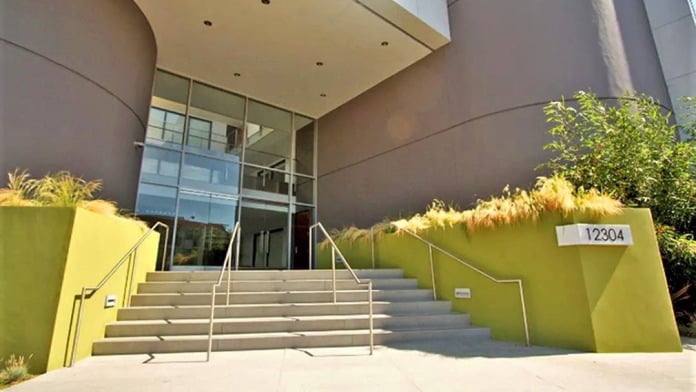
6 6 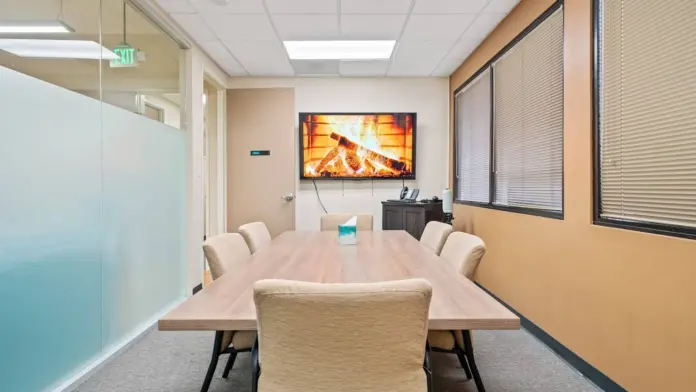
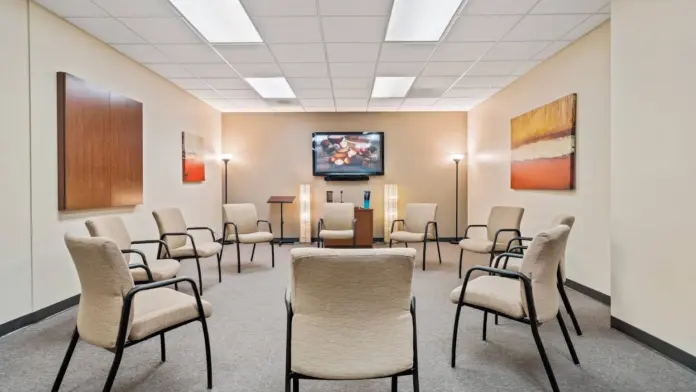
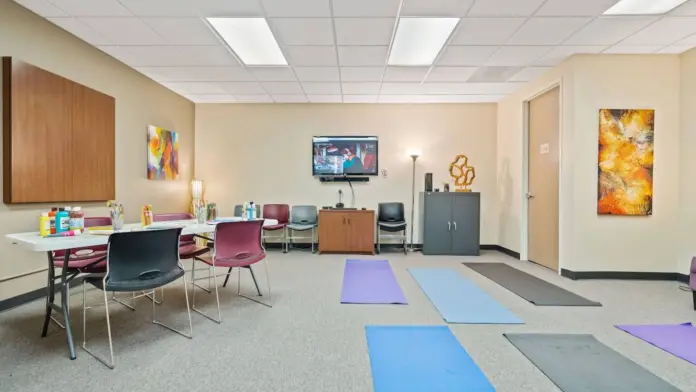
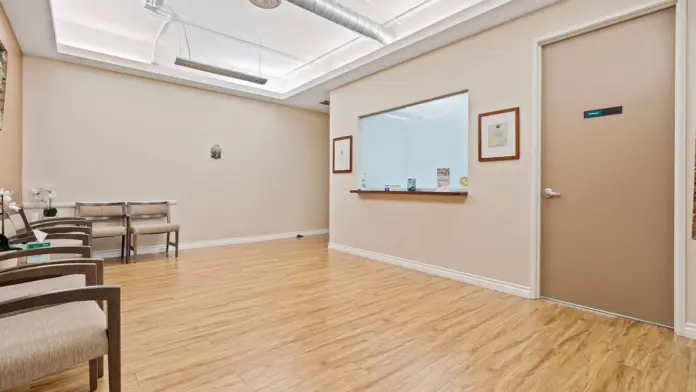
| |
Los Angeles, CA | Avedis Recovery provides substance abuse treatment in California. The facility is in the calm, serene area of Los Angeles, where you can schedule an in-person visit with one of their addiction specialists. They offer support for guests and family members. If guests need a higher level of care then they can provide referrals to their residential ser | Treatments Programs Payment Options | I was here for detox and then I flew back home.
But the staff was absolutely incredible, they truly cared and made such a huge impact on my recovery. Amanda is an amazing tech!!
Aryana Brackett
7 months ago
I have been to a multitude of treatment centers in and outside of California, Avedis Recovery is by FAR the most caring, authentic, and helpful place I have ever been to. It is the ONLY place that I was able to stay sober during my entire time and where I was able to find the confidence in myself to stay sober and where I found real growth. They care. Every other treatment center it was very clear that the management and program directors were really only involved for the money. The program director at Avedis is not, he and all other staff GENUINELY CARE!! Usually at other places you never see the director but here you see him almost everyday, he is involved and genuinely cares about people here and their sobriety. With the help of Avedis Recovery I was able to gain a newfound confidence in myself, my family’s trust, my faith in God, and most of all a clear and sober mind. If it wasn’t for Avedis I don’t know where I would be, but now I am almost 8 months sober and am actually happy and enjoying life. I give all the thanks to God and Avedis!
Eamon Steed
1 year ago
It’s a good experience to work with Avedis Recovery! So many touching stories of alumni. Very good attitude towards patients
Questicity Inc.
1 year ago
| 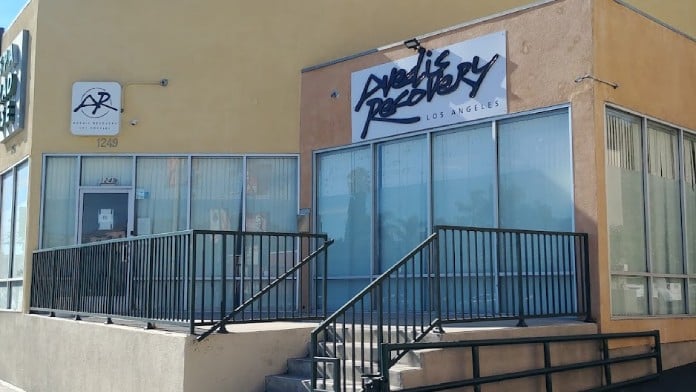
2 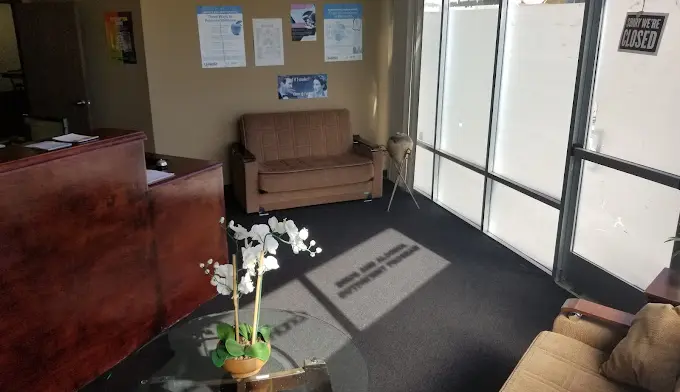
| |
Winnetka, CA | Maple Moon Recovery is a residential drug and alcohol addiction rehab. They’re based in Winnetka, California and their services are designed for adults. They offer medical detox, medication assisted treatment, inpatient and outpatient treatment for drug and alcohol addiction. The skilled team at Maple Moon Recovery has made it their mission to ma | Programs Payment Options | My experience at maple moon can not be described in a few sentences. This is a great place to grow as an individual and get all sorts of help ranging from. Mental help to drug addition.they really played a major role in putting my life back on the right track
Paul Stoe
3 months ago
Maple moon has been a God send! Can’t express my gratitude for the care and compassion they’ve given me. Came into this Austin with so much resistance and they made my stay feel like home. From the food to the staff everything was Top Tier. If they had more stars I would give them 10. If you out a loved one is looking for a recovery center with integrity and a high degree of care, you’ve found the right place.
Bernard Rackley
5 months ago
I had the privilege of coming here for detox and couldn't be more appreciative of the staff and accommodations here. I stayed for 2 weeks and was constantly catered to by all of the staff. Truly a 5 star experience while going through the worst time of my life. The people here truly treat you like their own family. I don't know how they manage to deal with several emotional people all day every day and still manage to give everybody specialized individual attention but they do. I came in there like a wrecking ball and they still took great care of me. Even the chefs cater to everybody's personal needs. I'll be 200 days sober in 2 days and probably wouldn't be alive if it wasn't for this place. A very delayed review, but anybody questioning if they should stay here or not should have no question about it and choose Maple Moon for their recovery.
BG Brancucci
5 months ago
| 
2 

| |
Asana Recovery: Drug & Alcohol Rehab In CaliforniaAd This is an ad and Asana Recovery: Drug & Alcohol Rehab In California is a paid advertiser. Paid advertisers may be listed first in search results. This ad may contain content provided by the advertiser. Rehab.com does not verify ad content or any reviews that are displayed. Learn More Costa Mesa, CA | Asana Recovery has many locations, including the outpatient clinic on Pomona Avenue in Costa Mesa, California. That location is only a 12-minute drive to Balboa Pier at the beach. Their outpatient treatment for adults includes a partial hospitalization program (PHP), and an intensive outpatient treatment program (IOP). These programs are for adu | Treatments Programs Payment Options | View Website (949) 763-4175 | Asana Recovery: Drug & Alcohol Rehab In California has no reviews yet. Leave a review.
| 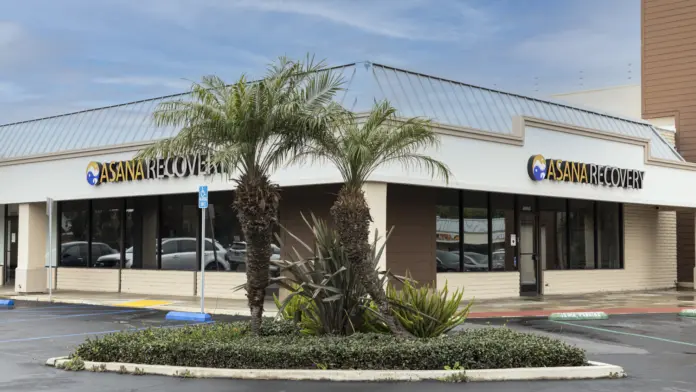
13 13 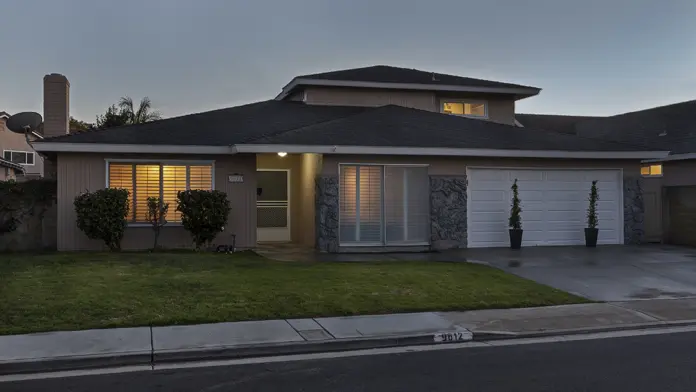



|
Los Angeles, CA | Luxe Recovery, as you can guess by the name, is a luxury addiction treatment center. The house is located in Los Angeles, California and is within walking distance from Commonwealth Nursery Griffith Park. You’ll be able to engage in their treatment programs which they offer in outpatient and inpatient settings. The difference between the two is t | Treatments Programs Payment Options | My time at Luxe Detox Center was nothing short of life-changing. When I arrived, I was scared, lost, and unsure if I could really turn things around. From the very first moment, the staff welcomed me with such genuine care that I immediately felt something I hadn’t felt in a long time — hope.
Every single person there touched my heart in their own way. The nurses, counselors, and support team weren’t just doing a job — they truly cared. They listened, they encouraged, and they stood by me through every difficult moment. There was never any judgment, only compassion and understanding.
And I can’t say enough about the chef. The love that went into every meal was something I’ll never forget. The food wasn’t just amazing — it was comforting, healing, and made with heart. Somehow, each plate reminded me that I deserved to be cared for again.
What makes Luxe so special is the way they make you feel human again. They help you see that recovery isn’t just possible — it’s beautiful. I didn’t just detox my body there; I started to heal my soul.
I left Luxe feeling stronger, clearer, and deeply grateful. This place gave me more than sobriety — it gave me a second chance at life. Thank you to every single person there for your love, your patience, and your belief in me. You’ll always have a place in my heart. ❤️ and a special shout out to lindsey katie laura shantel Danielle nick joe ash and brett
jon bruneau
3 months ago
Luxe helped me get sober and guided me in the beginning stages of Recovery. I highly recommend it.
Kevin Brisbin
4 months ago
Awesome place highly recommend. Ice unfortunately been to a bunch of rehabilitation centers and this one was by far the best I've been clean and continuing to do right since I left. If you want a place that will truly invest in helping you and your recovery look no to further :)
Jonathan Snyder
4 months ago
| 
5 5 



| |
Encino, CA | Restore Health and Wellness Center offers medical detox, residential alcohol and drug rehab, and outpatient treatment for adults in Canoga Park, California. Services include dual diagnosis treatment, medication-assisted therapy (MAT), and holistic treatment such as art therapy, meditation, yoga, and exercise therapy alongside evidence-based modalit | Treatments Programs Payment Options | I didn't know what to expect when I showed up at Restore. I was scared and hating life. I ended up having a great adventure. Did everything run smoothly, no. But you show me a place that does and I will still call you a liar. I met empathetic, warm hearted and determined people who wanted to help me and see me get better. I have been through TX before so I had expectations, but after looking back at my time there, it was exactly what I needed. I am forever grateful that Restore answered the call when I needed help and hope the most. Thank you :)
Renae Dougherty
2 months ago
Restore taught me that relapse isnt failure its data about what needs to change next time.
Blanca Vaughn
2 months ago
My counselor saw my potential when I was at my absolute worst thats real love right there
boyy Mander
2 months ago
| 
4 


| |
Los Angeles, CA | Golden Road Recovery is a drug and alcohol rehab in Los Angeles, CA. They provide inpatient addiction treatment and medical detox. Golden Road Recovery is a drug and alcohol rehabilitation facility located in Los Angeles, California. The levels of care you can receive here include detox, residential treatment and aftercare. They have an accredita | Treatments Programs Payment Options | The facility is well run and you can tell the staff cares. Personable and knowledgeable clinicians and staff. Plus they bring their dogs, which is like getting an ancillary therapist.
Nick H
2 months ago
Golden Road saved my life. That is the long and short of it. I am forever grateful to the faculty, staff, and facility for all the love and support they provided me and the safe environment I was afforded during the most difficult time in my life. I received the highest quality of respect, compassion, and therapy; it has transformed my life and recovery. I will always be indebted to Golden Road and will look back on my time there with love and admiration. Thank you GRR!
Vertis McManus
3 months ago
Golden Road truly changed my life. The staff here care deeply -- not just about helping me with my recovery, but about helping me heal and rebuild my confidence. Every clinical and support member took the time to listen and guide me without judgment. The environment feels safe, supportive, and full of genuine compassion. Recovery isn't easy, but being surrounded by people who understand and believe in you makes all the difference. I am deeply grateful for the tools, hope, and community I found here.
LG
3 months ago
| 




| |
Los Angeles, CA | Starbridge Recovery Center, located in Los Angeles, California, is an alcohol and drug rehab center that provides addiction treatment services to men and women seeking recovery. They offer a luxury environment equipped to help individuals through medical monitoring, emotional healing, and guided support during the initial stages of treatment. Indi | Treatments Programs Payment Options | This is the best place to be ! They saved my life and helped me find myself. If you or anyone you know needs help, this is the best place to be!!! The staff is great! I love y’all Starbridge !
Caution 2Solidd
5 months ago
I was worried about my loved one going out of state for treatment. But it was the best thing that he could have done. I am grateful for all of the staff and the great team that helped get him in the door. I know this is just the beginning and everything is a lot better than it was.
PHM INC
6 months ago
Amazing facility, staff, and resources. Not my first treatment center but definitely the most beneficial one. Would highly recommend to anyone struggling with substance abuse and/or mental health.
Grace Arnold
7 months ago
| 




| |
Los Angeles, CA | Novo Detox is an alcohol and drug detox treatment center located in Los Angeles, California. They provide dual diagnosis treatment, residential detox and inpatient rehabilitation. Self pay is accepted. Daily rates vary depending on your treatment plan. Residential detox can last anywhere from three to 14 days. It will all depend on each individual | Treatments Programs Payment Options | Novo Detox changed my life! I have been thru several “detoxes” but none were as good as this one’. The staff is amazing and extremely helpful. I have a lot of tools to take home to continue my sober life. Many thanks for Novo for bettering/changing my life!
Christine Beldowicz
1 year ago
Novo detox was a great experience. I came in a broken person. I'm leaving with hope and am forever greatful. At a new lease on life. The staff is outstanding. The groups are very educational and fulfilling. I suggest anyone who's struggling with the disease of addiction or alcoholism to give them a call. They care for you when you don't.
1
1 year ago
I felt at home quick. The staff are awesome, made a lot of long term friends, I felt safe through a rough detox, and feel I can hit the ground running on sobriety.
Derek Kreider
1 year ago
| 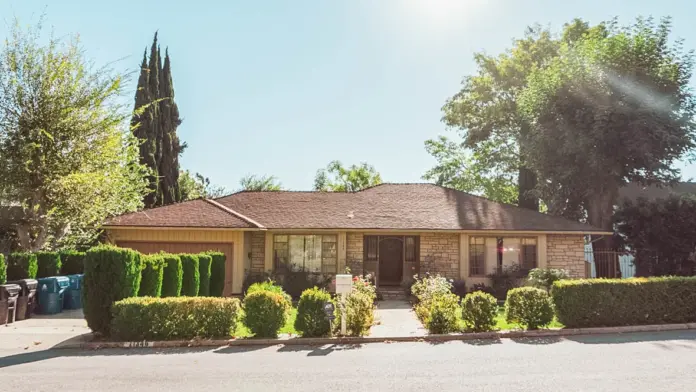
4 



| |
Tarzana, CA | West Valley Detox specializes in providing medically assisted detox and residential treatment for dual-diagnosis disorders but also includes holistic and experiential elements. In a comfortable, contemporary setting, clients will experience 24-hour care that licensed clinicians provide in a 3-to-1 clinician-to-client ratio. Clients experience luxur | Treatments Programs Payment Options | After trying a few rehab centers in the past, I can confidently say that West Valley Detox is on a whole different level. From the very first call, the staff made me feel supported and cared for. The therapists are truly dedicated and take the time to understand each client’s needs. The environment is peaceful and perfect for healing, and the daily meals are healthy and delicious. I’m so grateful for the experience — it changed my life for the better.
arins Gasparyan
3 months ago
Best alcohol detox program in Los Angeles. They have amazing clinical staff and overall the program feels like home. There is also the chef Heather who makes amazing food which just a huge plus to the overall experience
Инна Лошак
4 months ago
Best drug rehab in Los angelea
Armen Danielyan
5 months ago
| 




| |
South Shores RecoveryAd This is an ad and South Shores Recovery is a paid advertiser. Paid advertisers may be listed first in search results. This ad may contain content provided by the advertiser. Rehab.com does not verify ad content or any reviews that are displayed. Learn More Dana Point, CA | South Shores Recovery is a dual-diagnosis drug rehab and substance use treatment facility in Dana Point, California. They serve adult men and women with detox and outpatient programs.. The treatment center creates a trauma-informed individualized curriculum for every client, comprising conventional, evidence-based treatments like cognitive behavior | Treatments Programs Payment Options | View Website (877) 527-2150 | South Shores Recovery has no reviews yet. Leave a review.
| 
11 11 



|
Agoura Hills, CA | Elevation Behavioral Health is a luxury drug and alcohol rehab in Agoura Hills, California. They provide residential dual-diagnosis treatment and an intensive outpatient program (IOP). The residential treatment program not only treats the diagnosis but also the underlying causes of addiction and mental health issues. Clients receive a variety of th | Treatments Programs Payment Options | My stay at Elevation.
I was in a pretty rough place and needed to get some intensive support. I found Elevation while researching and what drew to me to them vs other places I saw was;
* Private Room. I had to be honest with myself that this was something important to me, to have my own space.
* Daily Individual Therapy. In addition to group having daily individual therapy to help work through things and make the most of the time there.
* Electronic Devices Allowed. I have two young kids and I wanted to be able to stay in contact with family as well as use my laptop to research and view content related to what I was working through.
After filling out the form on the website Stephanie the admissions director reached out right away. Before she walked me through more details about the program she checked in to make sure I was ok, I felt supported already. She helped answer all my questions as well as get the information she needed to verify insurance coverage and what I would have to pay out of pocket. She got back to me quickly again and we figured out an admission date.
When I arrived in Los Angeles I was picked up at the airport and driven to their Calabasas house.
I won’t go into too many details about the house, it’s pretty fantastic and there are picture on the website.
I was greeted upon arrival, checked in, given a tour, and sometime to settle in my room.
Everyone in the house from the cleaner, chef, coaches, therapists, and psychiatrist are supportive and genuinely interested in making you comfortable and ready for doing the personal work you need.
There is a wonderful variety of therapies from individual, group, equine, yoga, meditation, acupuncture, nature walks, pool/jacuzzi, art, and music which all come at your problems from different angles and build on each other. The coaches are always available and engaged between sessions to keep the momentum going and support you.
Having daily individual therapy plus two groups daily helped me dive deep into the underlying issues I was facing and my progress built on itself everyday. I felt like I was making a months progress every week. My therapist Chad was just what I needed, he was thoughtful, creative and pushed when needed to help me go further.
I arrived in a very low state (not my usual self) and was able to quickly let go and unravel, the staff and my fellow patients helped put me back together and create sustainable coping techniques and strategies so I could return home a new person.
Having house-mates was a wonderful experience, even though we all came from very different walks of life and reasons for coming, we found deep common ground and support with each other. We laughed, and cried, and laughed again together.
The center of a house is the kitchen, and at Elevation this was no exception. Chef Jerry and Josh not only made amazing and healthy food, they were open to having us join the process and learn how to cook. We spent most of our afternoons between sessions joining in on the cooking process. Chef Jerry was like another therapist who gave us amazing life advice and was always open to listen to use when we needed a little support. Everyone at elevation from the cleaner to the coaches and the patients all eat the same food together. It felt like a big family.
I felt that when I needed alone time and privacy or wanted to do something social I could move between those modalities anytime. I never felt pressure to join in anything, just welcomed.
I left elevation feeling like a new person, equipped with new skills and strategies to thrive at home and at work. I highly recommend Elevation.
Ryan McMinn
8 months ago
⭐ Hands Down the Best Mental Health Program Available.
I can’t say enough good things about Elevations Behavioral Health. It’s hands down the best mental health care I’ve ever received. The setting is incredible — beautiful houses, exercise equipment, pools, jacuzzis, and so many community resources. They will take you on outings to the Pacific Ocean to watch sunsets — and yes, you *will* see dolphins!
From the residential program to the Partial Hospitalization Program (PHP), every detail is thought about and the staff are always there to help.
The Santa Monica Mountains surround you, and the views are so breathtaking you can sit for hours just taking it all in, meditating, and really feel yourself start to heal.
The food is amazing too — they have private chefs who customize meals to fit your diet and treatment needs, with tons of healthy options.
Unlike most residential treatment programs, you get both individual and group therapy *every day*. That’s really unheard of in a residential program — usually you would receive one or two individual sessions a week
The staff and therapists are absolutely amazing — they genuinely care and don’t let you give up on yourself. I cant name them all because I would forget someone. Too many to count; dedicated and MOre than experts at what they do!
If you’re struggling, please know you’re not alone. Getting help is the best thing you can do for yourself. Elevations changed my life, and it can change yours too. You *are* worth it, and you *can* do hard things. Take the first step — it’s so worth it.
#mentalhealthmatters #healingjourney #mentalhealthrecovery #selfcare #youareworthit #endthestigma #mentalwellness #mindfulhealing #selflovejourney #itsokaynottobeokay #recoveryispossible #mentalhealthsupport #breakthestigma #liveyourbestlife #recovery
Dr. Trina D (tbird1992)
8 months ago
Elevations residential mental health treatment is exceptional. Look no further if you want to receive the best residential mental health care available in the most beautiful setting. You receive daily groups and individual therapy, which is rare in residential mental health treatment in my experience. I recently received residential at Elevations in Calabasas, CA. (Nov. 2024) I felt safe and cared for. Dr. Chaudhri cares deeply about the programs and getting things right. The dedicated technicians make sure that you are always safe and your needs are met. The therapists are dedicated and exceptional in their treatment of complex mental health diagnoses (BiPolar, depression, PTSD, OCD, anxiety.) The psychiatrist is one of the best I've ever had. The services I received and I encourage people to get are: EMDR, Nuerofeedback, massage, life coaching, nutrition consultation, meditation, acupuncture, and yoga. Make them part of your treatment if you can. The journey is hard work but being in such a beautiful place with highly qualified and compassionate people makes it easier. Always advocate for yourself and you will get what you need. I know no matter what I may need in the future Elevations Behavioral Health will be there. Thank you Elevations for changing and supporting my life. I am forever grateful. (Insurance and private pay only.) NOTE: the environment can get quite loud and bright so if you have PTSD or other sensory issues make sure to address it early with the organization or you may suffer from the sensory overload. Bring noise cancelling headphones and sunglasses to wear inside if this is a problem for you.
Dr. Trina D (tbird1992)
1 year ago
| 
| |
Burbank, CA | Multi Concept Recovery, located in Burbank, California, is a mental health care and treatment center. The facility offers substance use disorder and alcohol use disorder treatments and mental health services for teenagers and adults. Multi Concept Recovery’s levels of care include a partial hospitalization program (PHP), residential housing, an i | Treatments Programs Payment Options | This place helped me change my life for the better. Very highly recommended. You got this.
Karim
6 months ago
MCR SAVED ME FROM DRUGS, MYSELF & DRINKING! I want to talk about my experience, everyone was very kind and we had a great group that I was with at the time which really helped me to recover. The first two weeks I had still been off the wagon, but as soon as I confessed to the group I immediately began to heal. Carlee was an excellent therapist for me and I remember having lots of friends supporting each other while I was getting my recovery. We would practice breathing exercises, watch movies that would help out with our recovery, and talk about anything or anyone who has been bothering us recently or from anytime in our lives. They even had a special brain training activity on the computer that you do to help focus on recovery. All the teachers were so nice and had fun assignments to do to help keep our minds off drugs and alcohol. They even have doctors who help provide medication to help keep drugs and alcohol away. I am much more responsible and take medication now to help maintain my sobriety. Thank you MCR!
Carlin Soorenian (Carlo)
1 year ago
This was one of the most helpful places I have ever been to. They treated kindly and professionally and actually specialized in my disorders properly. I can’t be more grateful to have gone here!
Deeberry24 Dawkins
1 year ago
| 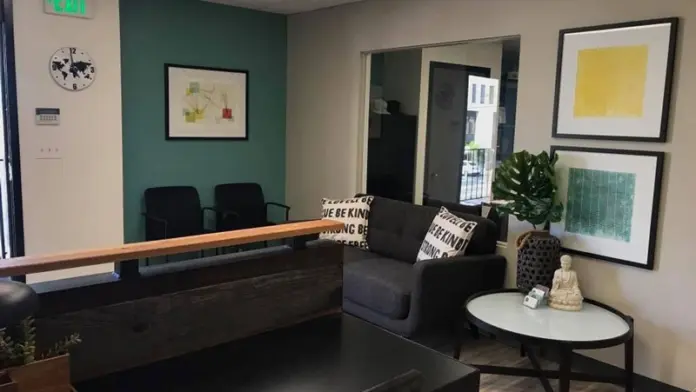
3 
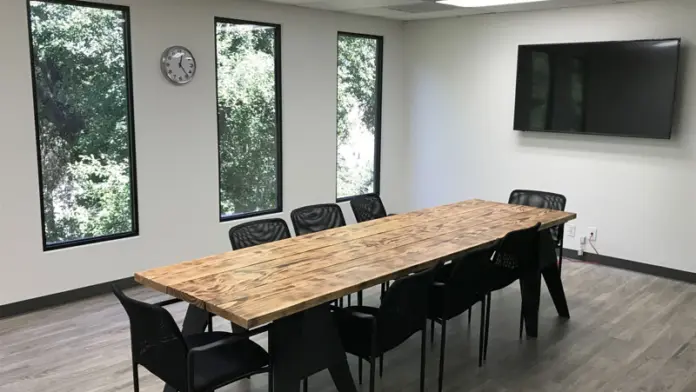
| |
Woodland Hills, CA | Vanity Wellness Center provides substance abuse treatment for adults. You’ll find ‘em located out in Woodland Hills, California. They offer detox, residential, and outpatient services. Clients will notice the scenic views of the San Fernando Valley and have a compassionate, supportive setting for healing. You’ll have luxurious amenities, l | Treatments Programs Payment Options | I can personally say that this is an absolute amazing place. I had great experience with the staff each and everyone hand-picked to perfection. If you ask my opinion, the nurse Jade is absolutely amazing. I know that I will miss her terrible Josh is very very very, very super amazing. deja super sweet person. Georgie is a very caring understanding person. I can actually say I have a good word for each and everyone of them. It would take up a lot of space so I won’t just know that I appreciate each and everyone of you and wish the very best in life for you I would also like to say that Ariel is absolutely amazing. There were a few situations that were scary that he was very comforting very understanding and I like the shout out and say things to everybody.
Catherine Brockett
4 months ago
The detox is great. Awesome staff that cares and is patient with every client. It’s not a “one shoe fits all” we all have different issues. Staff addresses problems directly and doesn’t let problems linger. Great food. 3 meals a day. Self care day on Saturdays. Outings on Sundays. A lot of freedom and free time. Great groups. Small group of clients so it’s a more personal feel. Bonus: candy drawer
Karam gawlowicz
7 months ago
Vanity provided a great environment to begin my healing and recovery journey. I am so grateful for the staff/resources and the opportunities presented to me throughout my time there. If you are looking to start a better life for yourself, Vanity Wellness Center may be the place for you! :)
Addy
11 months ago
| 
5 5 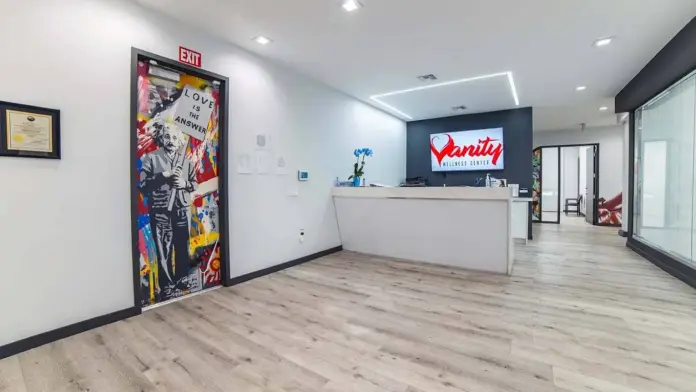

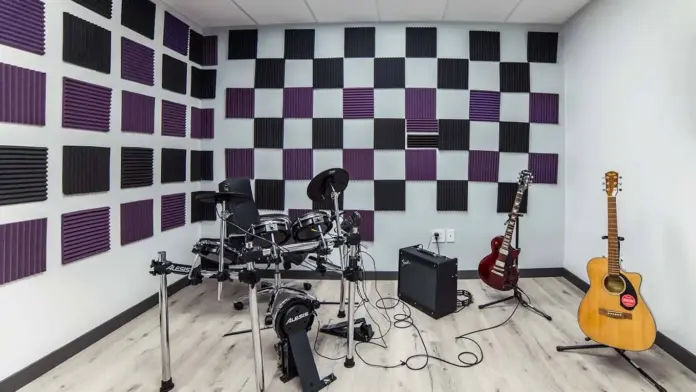

| |
Los Angeles, CA | Profound Treatment, located in Woodland Hills, California, offers medical detox and dual-diagnosis inpatient alcohol and drug rehab for adults. They have specialized programs for professionals and for transgender individuals, and their treatment programs are LGBTQ+ inclusive. Services include medication-assisted treatment (MAT) and holistic options | Treatments Programs Payment Options | Best place ever and the staff are always there for you a 10 out of 10 place
Nick Staehly
2 months ago
I’m at a crossroad in my life where I finally acknowledged I needed professional help for my drinking. I called the 1st number I googled. It landed me with Profound. I just finished my 30 days in California at one of their incredible homes located in one of the most prestigious areas in Los Angeles. The home was nothing short of amazing. The staff was top notch and all have been in my shoes. They were very easy to talk to, and the environment was comfortable and accommodating. I was not anticipating going to another State for treatment. They covered my flight there and back. After finishing my 30 days, I now feel equipped with what I need to stay sober for my family and myself. Thank you Profound for giving me sobriety and a new outlook on life.
Ben P
2 months ago
If you are ready this is the place to go, the staff is out of this world they care, they love and they want what you want. Take the leap and you will not regret it. The food is amazing and the location is beautiful, you are treated as an adult that is looking to better their selves. The Staff and facilitators go above and beyond.
Molly Clanin
2 months ago
| 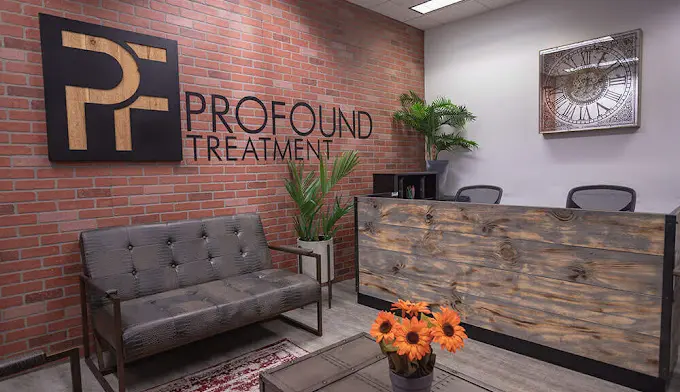
5 5 



|

California is ranked 23rd nationwide in terms of addiction treatment affordability, with an average cost of addiction treatment of $56,654.
The costs of drug and alcohol rehab in California vary widely and depend on several factors, including:
The costs of addiction treatment listed for cities and states are averages based on the cost of the treatment types listed above. These averages are high due to the cost of medical detoxification and residential inpatient rehab programs.
These numbers also reflect the raw cost of drug rehab, before any insurance coverage. The typical individual seeking addiction treatment can expect to pay much less for outpatient or intensive outpatient services than the averages listed below.
There are many ways to pay for drug rehab in California. Most treatment centers accept cash or self-payment, as well as private health insurance. However, there are many treatment centers in California that accept Medicaid and Medicare, or offer sliding scale payments or other low-cost payment options. Here’s the complete breakdown of how to pay for addiction treatment in California.
Blue Cross Blue Shield is the most widely-accepted insurance for drug rehabs in California, with 824 treatment centers in the state accepting their insurance. Aetna is the 2nd most popular with 816 treatment centers accepting it followed by Cigna in 3rd accepted by 709 drug rehabs.
California is ranked 32nd nationwide in drug rehab admissions, with 340 rehab admissions per 100,000 population in 2023, which is lower than than the U.S. national average of 621 admissions per 100,000.
The following are the number of California rehab admissions in 2023 for each of the 6 most frequently used drug classes, as well as the relative percent for each type of drug.
Source: Substance Abuse and Mental Health Services Administration. National survey of substance abuse treatment services (N-SSATS).
California is ranked 26th nationwide in terms of annual drug overdoses, with an average of 29.7 overdoses per 100,000 population and a total of 11,538 overdoses in 2023. Opioid abuse accounted for 70% of all drug overdoses in California, with a total of 8,034 opioid overdoses in 2024.
Centers for Disease Control and Prevention. Provisional drug overdose death counts. U.S. Department of Health and Human Services.
California is ranked 33rd for drug and narcotics-related violations, with an estimated 329 narcotics citations per 100,000 population which is lower than the National Average of 421.
All values are per 100,000 population.
Federal Bureau of Investigation. Crime data explorer: Crime trends. U.S. Department of Justice.
California has the 18th highest rate of drunk driving in the nation, with a total of 246 DUI arrests per 100,000 people in 2023 (and 96,048 total DUI arrests).
All values are per 100,000 population.
SafeHome.org. DUI statistics and trends.